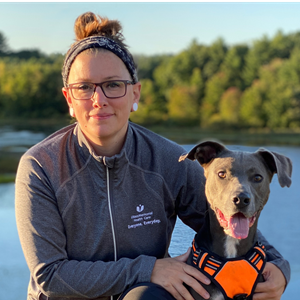2025 MVMA Fall CE Conference (In-Person)
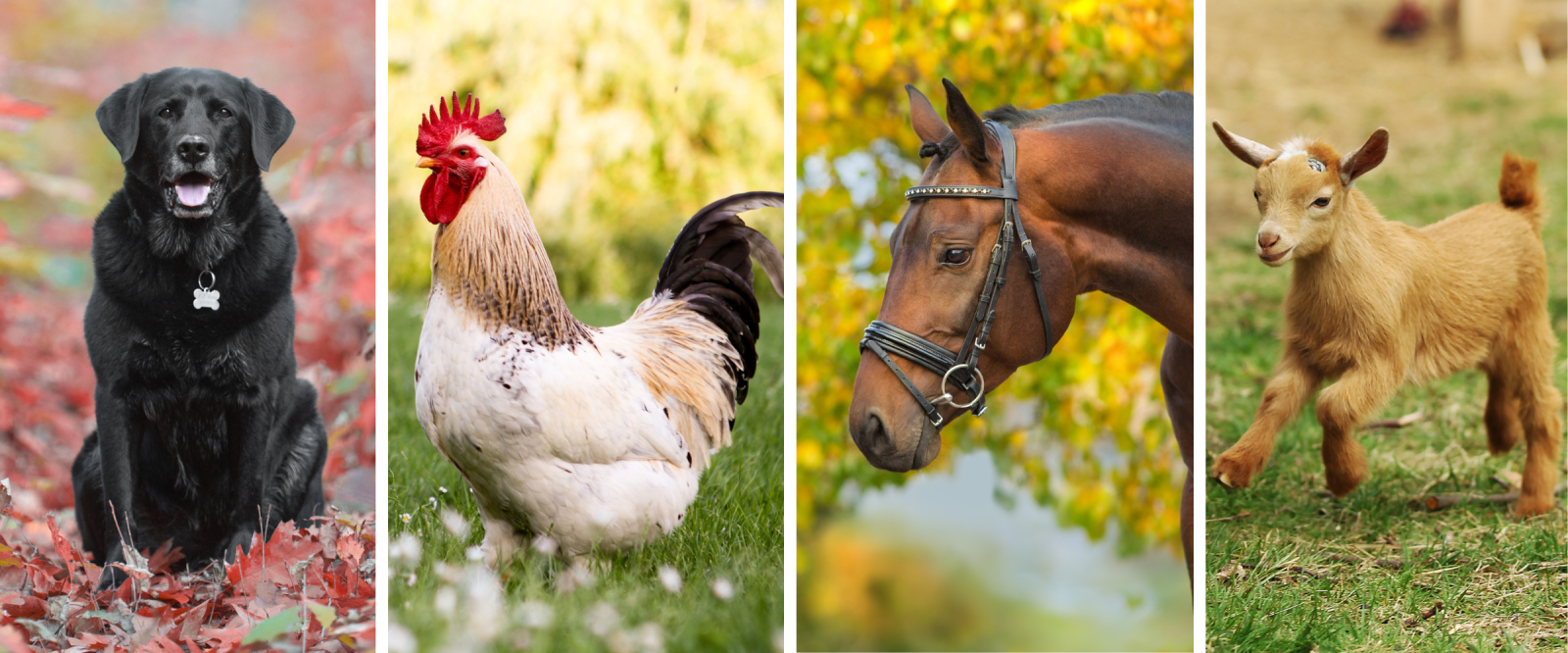
Join us for the MVMA Fall Conference on October 25-26, 2025, at MGM Springfield!
Choose to attend for one day or immerse yourself in the full two-day experience while earning up to 12 CE credits. Engage in high quality educational tracks tailored to your interests, connect with fellow veterinary professionals and industry leaders, and make the most of the venue’s incredible amenities—including a movie theater, indoor golf, bowling, fine dining, a casino, and more.
Wrap up Saturday with a relaxed evening at our cocktail reception, where you can mingle with colleagues over complimentary appetizers and a cash bar—plus, the first 50 attendees receive a free drink ticket!
The Celebrate Veterinarians! reception will also take place on Saturday, October 25th at 7:00pm. Separate registration is required.
Don’t miss this chance to learn, connect, and unwind in a fantastic setting!
Hotel Reservations (discounted until EOD Oct, 2)
PLEASE NOTE: There is NO hybrid/virtual option for this event. This is an in-person conference.
JUST ADDED!
Destination Health Clinic will have an RN on-site at the MVMA conference on SUNDAY, OCTOBER 26th from 9am - 1pm to provide rabies and tetanus vaccines and blood draw for rabies titer testing. Appointment is required and each person must register for their own appointment time. Payment will be taken at time of service. Credit card, debit card, or HSA card accepted. No cash or check. Once an appointment is scheduled they will send an email with additional information along with a consent form.
Register for vaccine/titer appointment HERE
Rabies Titer (Endpoint):
Cost: $230
*Results will be returned in 3-4 weeks
Rabies Vaccine (Human Use)
Cost: $550/dose
Tetanus (Tdap) Vaccine
Cost: $75
If an MVMA member can’t make the conference but still wants to participate Destination Health will honor the same pricing in any of their three offices and you can contact them separately for an appointment.
Questions? Call Destination Health Clinic with at 508-784-6602 or email: admin@destinationhealthclinic.com
For more detailed descriptions of tracks, click here.
Saturday, October 25
Track 1 - SOLD OUT
Nutrition
Lisa M. Freeman, DVM, PhD, DACVIM (Nutrition)
Track 2
Protecting dogs from Lyme disease
Susan Little DVM, PhD, DACVM (Parasitology)
The Promise of SGLT-2 Inhibitors for Treatment of Feline Diabetes Mellitus
Thomas Schermerhorn VMD, DACVIM (SAIM)
Track 3
Top 10 Mistakes, Triage Techniques, and Must-Haves in Exotic Animal Medicine
Backyard Poultry Medicine, Respiratory Emergencies in Exotic Companion Mammals
Jennifer Graham, DVM, DABVP (Avian / Exotic Companion Mammal), DACZM
Track 4
Updates on Equine Respiratory Disease
Daniela Bedenice, DVM, DACVIM (LAIM), DACVECC
Equine Reproduction
Carlos Pinto, DVM, PhD, DACVT
Sunday, October 26
Track 1 - SOLD OUT
Diarrhea in Dogs and Cats
Maureen Carroll, DVM, DACVIM-SA
Vomiting in Small Animals: Uncovering Causes, Mastering Diagnosis, and Optimizing Treatment
Antonia Ioannou, BVMS, DACVIM (SAIM)
Track 2
Protecting dogs from Lyme disease
Susan Little DVM, PhD, DACVM (Parasitology)
The Promise of SGLT-2 Inhibitors for Treatment of Feline Diabetes Mellitus
Thomas Schermerhorn VMD, DACVIM (SAIM)
Track 3
Top 10 Mistakes, Triage Techniques, and Must-Haves in Exotic Animal Medicine
Backyard Poultry Medicine, Respiratory Emergencies in Exotic Companion Mammals
Jennifer Graham, DVM, DABVP (Avian / Exotic Companion Mammal), DACZM
Track 4
Equine Ophthalmology
Stephanie Pumphrey, DVM, PhD, DACVO
Practical Goat Dermatology
Jacquelin Graber, DVM
Respiratory Disease of Small Ruminants and Ophthalmology of Small Ruminants
Isabelle Louge, DVM
Track 1 - SOLD OUT
Nutrition
Lisa M. Freeman, DVM, PhD, DACVIM (Nutrition)
9:00am – 5:00pm
1. You’re feeding what?! Guide to evaluating and talking to owners about unconventional diets
This lecture will provide a practical approach to evaluating unfamiliar pet foods and discuss pros and cons of different unconventional diets, such as vegetarian, natural, home-prepared, and raw.
2. Nutrition conundrums: Dietary supplements: Helpful or harmful? and the “Epidemic” of food allergies
This session will discuss important considerations with dietary supplement and a practical approach to evaluating and recommending supplements for dogs and cats. For the second half of the session, food allergies in dogs and cats will be discussed, including the challenges with diagnosis and treatment.
3. Latest updates on diet-associated dilated cardiomyopathy
In 2018, the US Food and Drug Administration issued an alert about a potential connection between diet and cases of canine dilated cardiomyopathy. Since then, a great deal has been learned about this issue in pets eating high-pulse diets. This lecture will provide the latest updates on diet-associated dilated cardiomyopathy in dogs and cats.
4. DIY: Solutions to your challenging nutrition cases
Attendees can bring their own challenging nutrition cases to discuss how to best manage their diets and come up with practical solutions using readily-available tools and resources.
Track 2
Protecting dogs from Lyme disease
Susan Little, DVM, PhD, DACVM (Parasitology)
9:00am – 12:30pm
Lyme disease prevention is a key component of canine wellness care wherever the infection is endemic or emerging. This presentation will review important biologic features of tick vectors, including increased tick populations and ongoing geographic and temporal spread of ticks. In addition, we’ll discuss the mechanism of transmission and subsequent disease; review diagnostic strategies most likely to be helpful in practice; and provide an overview of effective treatments. Together, vaccination and tick control can protect canine health from the increasing threat of Lyme disease.
The Promise of SGLT-2 Inhibitors for Treatment of Feline Diabetes Mellitus
Thomas Schermerhorn, VMD, DACVIM (SAIM)
1:30pm – 5:00pm
In healthy cats, sodium-glucose co-transporter (SGLT) proteins reabsorb large amounts of glucose from the urine and prevent glucosuria. SGLT-2, a specific SGLT subtype present in the renal proximal tubules has a vital role in normal glucose homeostasis but contributes to the development of persistent hyperglycemia in diabetes mellitus. Drugs that target SGLT-2, specifically a class of drugs known as SGLT- 2 inhibitors, have emerged as important tools for the treatment of diabetes mellitus. SGLT-2 inhibitors act selectively in the renal proximal tubules to inhibit glucose uptake from urine and promote renal excretion of excess glucose. Velagliflozin, a novel SGLT-2 inhibitor, was recently approved for treatment of feline diabetes mellitus. This talk will review the background and pharmacology of SGLT-2 inhibitors in the treatment of diabetes and present guidelines for the clinical use of velagliflozin in diabetic cats, including patient selection, expectations, and patient monitoring.
Track 3
Top 10 Mistakes, Triage Techniques, and Must-Haves in Exotic Animal Medicine
Jennifer Graham, DVM, DABVP (Avian / Exotic Companion Mammal), DACZM
9:00am – 12:30pm
Part 1: Do you know that ‘GI stasis’ is not a diagnosis in small mammal patients? Do you know which pet bird species are sexually dimorphic? Do you know that rabbits in a critical state are often hypothermic, hyperglycemic, azotemic, and can appear to have an obstruction pattern on abdominal films – and that all these conditions can resolve with aggressive supportive care measures? If you answered ‘no’ to any of these questions, then attend this lecture to learn about 10 common mistakes made when treating companion pet exotic species in the ER.
Part 2: Other than acute trauma cases, exotic patients presenting on emergency often have significant underlying disease. The owner may not note any abnormalities until the animal has decompensated. The clinician must be prepared to intervene with life saving measures when necessary. This presentation will discuss triaging exotic patients with a focus on initial assessment, stabilization procedures such as vascular access, and patient support including fluid/shock therapy, analgesia, and oxygen therapy. Adapting your hospital to accommodate exotic species as well as commonly used equipment and supplies will be covered.
Backyard Poultry Medicine, Respiratory Emergencies in Exotic Companion Mammals
Jennifer Graham, DVM, DABVP (Avian / Exotic Companion Mammal), DACZM
1:30pm – 5:00pm
Backyard poultry represent a growing segment of the companion animal veterinary market. Based on reports from colleagues, their popularity is only going up! This lecture will cover the basics of backyard poultry medicine and husbandry. Attendees will learn husbandry basics, an overview of chicken breeds and important anatomic features, common disease presentations and their management, all while having a clucking good time!
Exotic companion mammal (ECM) respiratory emergencies present many challenges to clinicians. The unique anatomy and physiology of many ECMs requires a specialized approach to these types of cases. This lecture will review anatomy and physiology of the respiratory tract of ECMs and techniques for triage and emergency stabilization efforts. A review of common respiratory emergency presentations for ECMs will also be discussed.
Track 4
Updates on Equine Respiratory Disease
Daniela Bedenice, DVM, DACVIM (LAIM), DACVECC
9:00am – 12:30pm
This session focuses on current or novel concepts related to the diagnosis and management of equine respiratory disease (including Equine Asthma, bacterial pneumonia and neonatal respiratory disease). The objective is to provide information to aid in the accurate diagnosis of respiratory dysfunction and to propose updated management recommendations that may enhance patient outcome. Strong considerations will be given to antimicrobial stewardship for the treatment of bacterial disease.
Equine Reproduction
Carlos Pinto, DVM, PhD, DACVT
1:30pm – 5:00pm
Pharmacological control of reproductive function in the broodmare
* How to maximize the efficiency of hormones used in mare reproduction :
-To induce cyclicity in anestrous mares
-To induce or suppress estrus in the cycling mare
-Estrus synchronization for scheduled procedures
-To trigger ovulation
-To treat breeding-induced endometritis
-To support pregnancy
-To suppress estrus
-To electively terminate pregnancy
-To induce parturition
Current therapies for treating the “problem” mare
* A mare having trouble in becoming pregnant or carrying a pregnancy to term is commonly referred to as a “problem” mare
-How to identify and implement strategies to manage the problem mare associated with:
-Infectious causes
-Non-infectious causes
-Breeding management issues
-Idiopathic sub- or infertility
-Proposed therapies for the problem mare
Reproductive ultrasonography for the broodmare
* Use of transrectal and abdominal ultrasonography in:
-Breeding management
-Pregnancy diagnosis and evaluations
-Normal mare
-High-risk pregnant mare
-Diagnosis of ovarian disorders
-Diagnosis of uterine disorders
Track 1 - SOLD OUT
Diarrhea in Dogs and Cats
Maureen Carroll, DVM, DACVIM-SA
9:00am – 12:30pm
Diarrhea in cats and dogs: The big and the small
In this lecture on diarrhea in cats and dogs, the discussion begins with a review of the anatomy and physiology of the gastrointestinal (G.I.) tract, highlighting the distinct roles of the small intestine and large intestine). Clinical signs help differentiate small bowel diarrhea—typically characterized by large volume, weight loss, and vomiting—from large bowel diarrhea, which presents with increased frequency, straining, mucus, and occasionally fresh blood. The pathophysiology involves disruption of normal digestive or absorptive processes due to infectious agents, dietary indiscretion, inflammatory disease, or systemic illness. Workup, current data on treatment options, supportive care and targeted therapy will be reviewed.
Fecal transplantation in dogs and cats: Past, present and future
This lecture explores the past, present, and future of fecal transplantation in cats and dogs, beginning with a historical overview tracing its roots back to ancient practices and its resurgence in modern medicine for treating gastrointestinal disorders. It delves into the critical functions of the gut microbiota in health and disease, including immune modulation, nutrient metabolism, and pathogen resistance, and reviews methods for assessing microbial composition and diversity. The use of antibiotics—particularly their disruptive effects on the microbiome—and the role of Clostridium difficile in both human and veterinary gastrointestinal disease are discussed as key drivers of interest in fecal microbiota transplantation (FMT). Current research, including data from human medicine and emerging veterinary studies, highlights the potential of FMT in treating chronic enteropathies, antibiotic-associated diarrhea, and other disorders outside the GI tract. Finally, the lecture considers future directions, such as standardized donor screening, encapsulated microbiota therapies, precision microbiome profiling, and regulatory and ethical considerations in veterinary applications
Just say No to Metro: An update on drug therapy in treating diarrhea in dogs and cats
This lecture focuses on drug therapy in the treatment of diarrhea in cats and dogs, emphasizing a multimodal approach that integrates dietary management, probiotics, and fiber alongside pharmacologic interventions. Diet plays a foundational role in stabilizing the gut environment, with easily digestible, novel protein or hydrolyzed diets often used in management. Probiotics and prebiotics aim to restore microbial balance, while fiber—both soluble and insoluble—can aid in stool regulation and mucosal health. Pharmacologic treatments include targeted use of antibiotics and antiparasitics based on diagnostic findings, with caution to avoid unnecessary disruption of the microbiota. In cases of chronic or immune-mediated diarrhea, immune modulators or immunosuppressive therapies such as corticosteroids, cyclosporine, or newer biologics will be reviewed
Vomiting in Small Animals: Uncovering Causes, Mastering Diagnosis, and Optimizing Treatment
Antonia Ioannou, BVMS, DACVIM (SAIM)
1:30 – 5:00pm
A comprehensive presentation designed to provide a deep dive into the complexities of vomiting in small animals. The first hour will focus on the mechanisms behind vomiting, exploring its physiological processes and identifying common causes, both gastrointestinal and systemic. In the second hour, we will shift to a structured diagnostic approach, discussing how to interpret clinical signs, select appropriate tests, and prioritize differentials to pinpoint the underlying issue. The final hour will cover effective treatment strategies, including acute management, long-term care, and preventive measures, ensuring a holistic approach to managing vomiting in small animals for optimal patient outcomes.
Track 2
Protecting Dogs from Lyme disease
Susan Little DVM, PhD, DACVM (Parasitology)
9:00am – 12:30pm
Lyme disease prevention is a key component of canine wellness care wherever the infection is endemic or emerging. This presentation will review important biologic features of tick vectors, including increased tick populations and ongoing geographic and temporal spread of ticks. In addition, we’ll discuss the mechanism of transmission and subsequent disease; review diagnostic strategies most likely to be helpful in practice; and provide an overview of effective treatments. Together, vaccination and tick control can protect canine health from the increasing threat of Lyme disease.
The Promise of SGLT-2 Inhibitors for Treatment of Feline Diabetes Mellitus
Thomas Schermerhorn, VMD, DACVIM (SAIM)
1:30pm – 5:00pm
In healthy cats, sodium-glucose co-transporter (SGLT) proteins reabsorb large amounts of glucose from the urine and prevent glucosuria. SGLT-2, a specific SGLT subtype present in the renal proximal tubules has a vital role in normal glucose homeostasis but contributes to the development of persistent hyperglycemia in diabetes mellitus. Drugs that target SGLT-2, specifically a class of drugs known as SGLT- 2 inhibitors, have emerged as important tools for the treatment of diabetes mellitus. SGLT-2 inhibitors act selectively in the renal proximal tubules to inhibit glucose uptake from urine and promote renal excretion of excess glucose. Velagliflozin, a novel SGLT-2 inhibitor, was recently approved for treatment of feline diabetes mellitus. This talk will review the background and pharmacology of SGLT-2 inhibitors in the treatment of diabetes and present guidelines for the clinical use of velagliflozin in diabetic cats, including patient selection, expectations, and patient monitoring.
Track 3
Top 10 Mistakes, Triage Techniques, and Must-Haves in Exotic Animal Medicine
Jennifer Graham, DVM, DABVP (Avian / Exotic Companion Mammal), DACZM
9:00am – 12:30pm
Part 1: Do you know that ‘GI stasis’ is not a diagnosis in small mammal patients? Do you know which pet bird species are sexually dimorphic? Do you know that rabbits in a critical state are often hypothermic, hyperglycemic, azotemic, and can appear to have an obstruction pattern on abdominal films – and that all these conditions can resolve with aggressive supportive care measures? If you answered ‘no’ to any of these questions, then attend this lecture to learn about 10 common mistakes made when treating companion pet exotic species in the ER.
Part 2: Other than acute trauma cases, exotic patients presenting on emergency often have significant underlying disease. The owner may not note any abnormalities until the animal has decompensated. The clinician must be prepared to intervene with life saving measures when necessary. This presentation will discuss triaging exotic patients with a focus on initial assessment, stabilization procedures such as vascular access, and patient support including fluid/shock therapy, analgesia, and oxygen therapy. Adapting your hospital to accommodate exotic species as well as commonly used equipment and supplies will be covered.
Backyard Poultry Medicine, Respiratory Emergencies in Exotic Companion Mammals
Jennifer Graham, DVM, DABVP (Avian / Exotic Companion Mammal), DACZM
1:30pm – 5:00pm
Backyard poultry represent a growing segment of the companion animal veterinary market. Based on reports from colleagues, their popularity is only going up! This lecture will cover the basics of backyard poultry medicine and husbandry. Attendees will learn husbandry basics, an overview of chicken breeds and important anatomic features, common disease presentations and their management, all while having a clucking good time!
Exotic companion mammal (ECM) respiratory emergencies present many challenges to clinicians. The unique anatomy and physiology of many ECMs requires a specialized approach to these types of cases. This lecture will review anatomy and physiology of the respiratory tract of ECMs and techniques for triage and emergency stabilization efforts. A review of common respiratory emergency presentations for ECMs will also be discussed.
Track 4
Equine Ophthalmology
Stephanie Pumphrey, DVM, PhD, DACVO
9:00am – 12:30pm
Understanding equine recurrent uveitis (1 hour):
This lecture will review key findings in equine recurrent uveitis, including more subtle clinical signs that are easily missed. Attendees will learn about indications for specific treatment options, including newer modalities such as suprachoroidal injections and intravitreal gentamicin, as well as surgical options like cyclosporine implants. An update on current thinking about pathogenesis will also be included.
Nonulcerative keratitis in horses: IMMK, HIK, EK – help! (1 hour):
This lecture will review clinical presentations for nonulcerative keratitides in horses. Attendees will learn how to recognize this set of diseases and institute initial management. We will discuss management of refractory cases and novel therapies like keratectomy and indocyanine green phototherapy.
So much trouble for such a small part of the body: equine corneal ulcers and stromal abscesses (1 hour):
This lecture will review assessment and management of equine corneal ulcers and stromal abscesses. Attendees will learn how to obtain and evaluate cytology samples, and how to select medications for initial management. We will review interventional options including keratectomy, crosslinking, and intrastromal injections.
Practical Goat Dermatology
Jacquelin Graber, DVM
1:30pm – 3:00pm
Part 1 (1:30-2:15pm): Diagnosis and Management of Common Derm Diseases in Small Ruminants
Review of basic diagnostic work-up of dermatological conditions in goats.
Diagnosis, treatment and management of ectoparasitism, trace mineral deficiencies, and other
common dermatological conditions.
Part 2 (2:15-3:00pm): Uncommon Derm Diseases of Small Ruminants
Case review of lesser known derm diseases including pemphigus foliaceus, atopic dermatitis,
and others.
Respiratory Disease of Small Ruminants and Ophthalmology of Small Ruminants
Isabelle Louge, DVM
3:30 pm – 5:00pm
Respiratory: A review of common diagnostic techniques, treatments, and preventative measures commonly employed in small ruminant respiratory disease cases. Common differential diagnoses for small ruminant respiratory disease will be discussed.
Ophthalmology: A review of the common ophthalmology calls seen by small ruminant practitioners. Common differential diagnoses, treatments, and preventative measures will be discussed.
14 days prior to conference - 50% refund
No refunds issued within 14 days of conference
At this time, the MVMA is not requiring vaccinations, boosters, or masks at in-person events. We will continue to adhere to the public health restrictions set forth by individual communities and will alert you of any changes to this policy. Complimentary face coverings will be offered at the registration desk for those who would like them.
Thanks to our Sponsors!
Click on the company logos to learn more!
|
|
 |
|
|
 |
 |
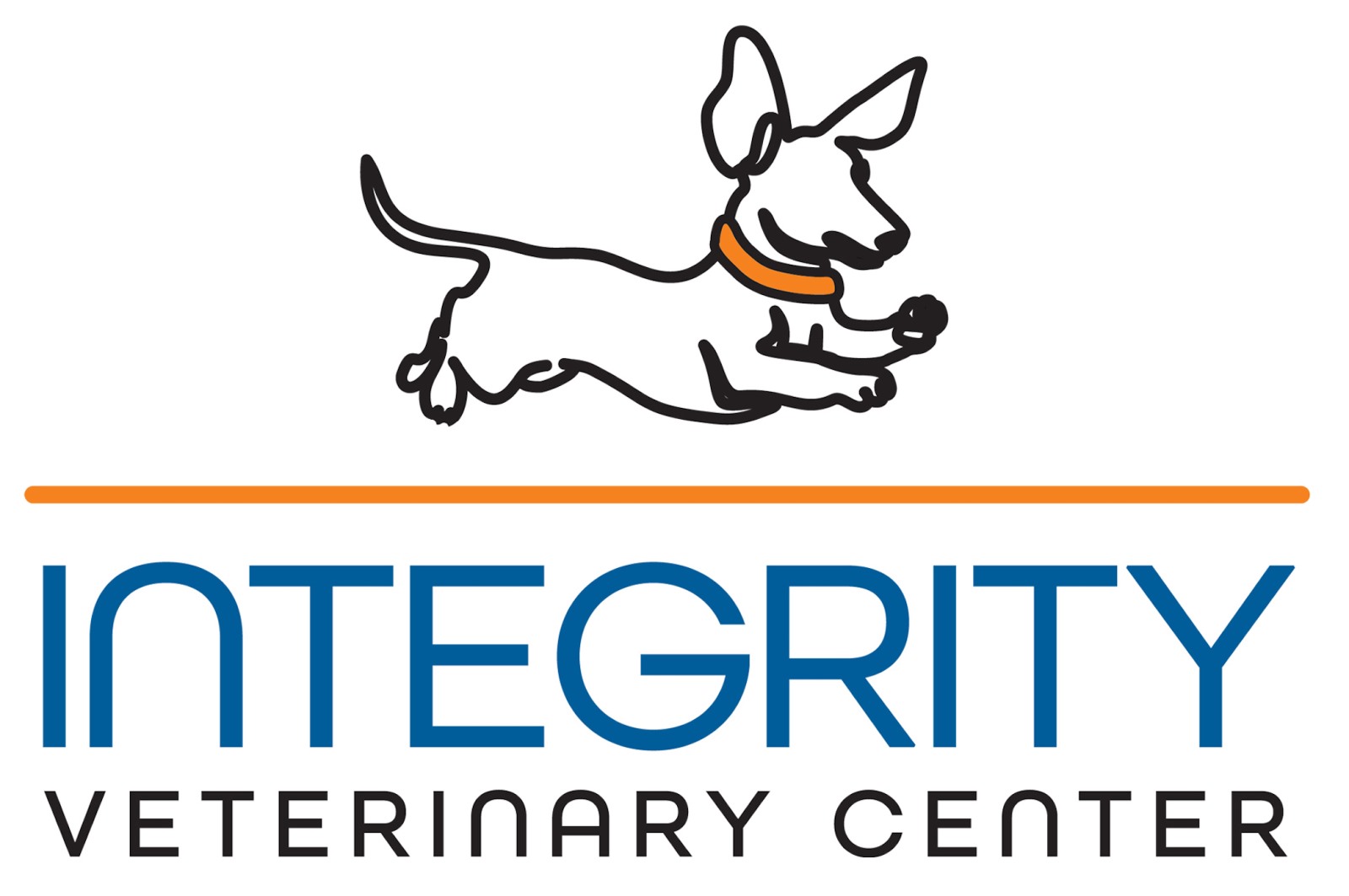 |
|
|
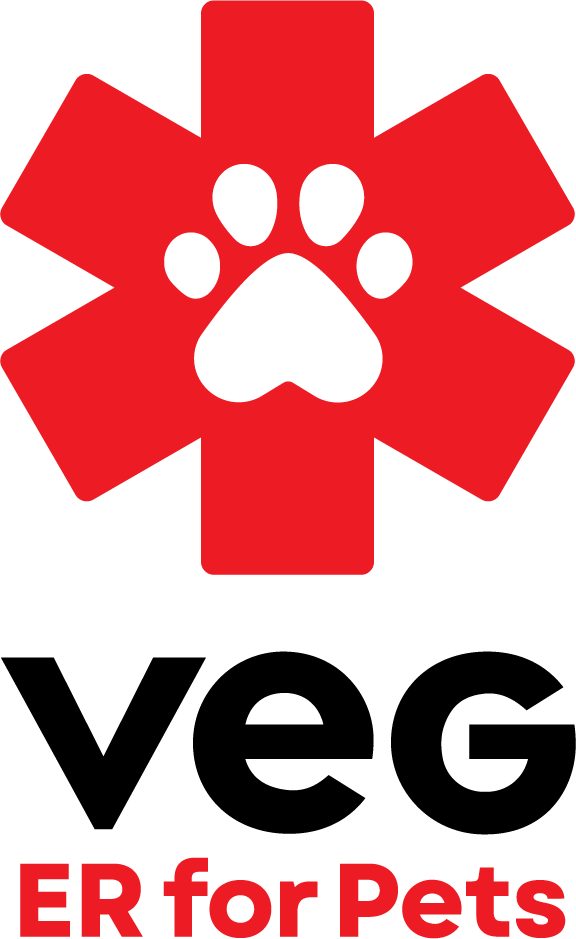 |
|
|
 |
|
|
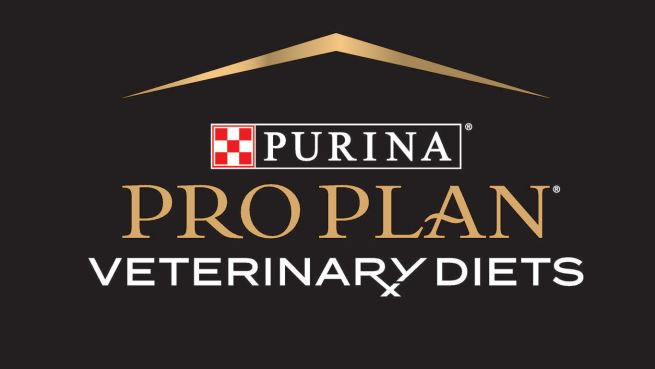 |
Speakers

Lisa M. Freeman, DVM, PhD, DACVIM (Nutrition)
Dr. Lisa Freeman is a Professor in the Cardiology Service at the Cummings School of Veterinary Medicine. As a Board Certified Veterinary Nutritionist, she teaches veterinary students, veterinarians, and pet owners about optimal feeding for their pets, especially those with heart disease. She conducts research on the role of nutrition in the development and management of heart disease and heads the Cummings School’s Residents’ Enhanced Veterinary Education and Academic Learning (REVEAL) Program. She also has a secondary faculty appointment at the Friedman School of Nutrition Science and Policy.
Dr. Freeman earned a bachelor’s from Tufts University, a DVM from the Cummings School, and a PhD in nutrition from the Gerald J. and Dorothy R. Friedman School of Nutrition Science and Policy—earning her the rare distinction of holding a degree from each of Tufts University’s three campuses. Her original intent was to become an equine veterinarian, but, through her studies, she became increasingly interested in nutrition and its role in preventing and treating disease.
Dr. Freeman teaches in all four years of the veterinary curriculum at the Cummings School and helps Cummings graduates to be well prepared to provide their patients with optimal nutritional care. Dr. Freeman also is passionate about helping veterinarians and pet owners learn to objectively provide the best nutrition possible to dogs and cats with heart disease.

Susan Little, DVM, PhD, DACVM (Parasitology)
Dr. Susan Little is a veterinary parasitology educator, researcher, and scholar who is recognized internationally as a leader in parasitology with particular expertise in zoonotic parasites, arthropods, and vector-borne infections. After earning a BS from Cornell University, a DVM from Virginia Tech, and a PhD in veterinary parasitology from the University of Georgia, she served for 3 decades in academia, teaching parasitology to veterinary and graduate students at the University of Georgia and Oklahoma State University. Dr. Little has authored more than 150 publications on veterinary and human parasites and tick-borne disease agents and is board-certified in veterinary parasitology through the American College of Veterinary Microbiology. She cofounded the National Center for Veterinary Parasitology, is a past-president of the American Association of Veterinary Parasitologists (AAVP), and an Emeritus Member and past-president of the Companion Animal Parasite Council (CAPC). Dr. Little is also an outstanding teacher and lecturer who has received 2 Excellence in Teaching Awards from the national Student American Veterinary Medical Association (SAVMA) and in 2017 was named Distinguished Veterinary Parasitologist by the AAVP.

Thomas Schermerhorn, VMD, DACVIM (SAIM)
Dr. Thomas Schermerhorn received his VMD from the University of Pennsylvania and completed an internship at South Shore Veterinary Associates and a small animal internal medicine residency at Cornell University. He is Jarvis Professor of Small Animal Medicine at Kansas State University and a diplomate of the American College of Veterinary Internal Medicine. Dr. Schermerhorn’s primary clinical and research interests are diabetes and glucose metabolism in dogs and cats.
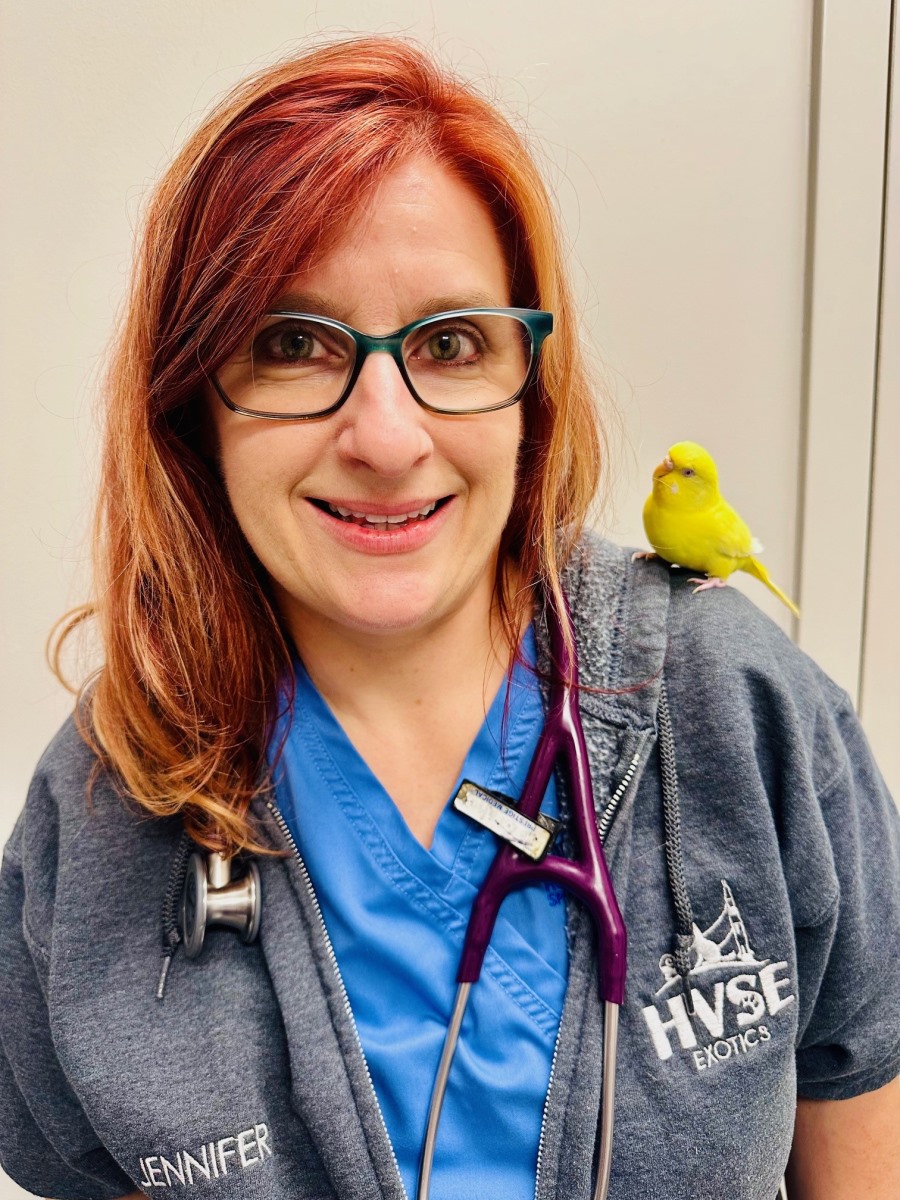
Jennifer Graham, DVM, DABVP (Avian / Exotic Companion Mammal), DACZM
Jennifer Graham, DVM, Dipl. ABVP (Avian / Exotic Companion Mammal), Dipl. ACZM: Dr. Graham graduated with her DVM from Auburn University in 1999. She completed an avian/exotic internship at the University of Georgia followed by a 3-year residency in avian/exotic animal medicine at the University of California at Davis. Following her residency, she started an exotics practice in a specialty referral hospital located in Seattle from 2003-2006. Dr. Graham worked at Angell Animal Medical Center in Boston from 2006-2012. From 2012 to early 2022, Dr. Graham ran the Zoological Companion Animal Medicine Service at the Cummings School of Veterinary Medicine at Tufts University. Dr. Graham is board certified with the American Board of Veterinary Practitioners in Avian and Exotic Companion Mammal practice categories as well as with the American College of Zoological Medicine. Dr. Graham is a member of multiple professional organizations, including the Association of Avian Veterinarians (AAV), the Association of Exotic Mammal Veterinarians (AEMV), Association of Reptilian and Amphibian Veterinarians (ARAV), and the Association of Zoo Veterinarians (AAZV). She has authored numerous research papers, chapters, and books including the ‘Five-Minute Veterinary Consult: Avian’ and ‘Exotic Animal Emergency and Critical Care Medicine’. Dr. Graham’s professional interests include NSAIDs/inflammation, oncology in exotic animal species, Encephalitozoon cuniculi, and emergency and critical care of exotic species. Dr. Graham is committed to promoting wellness in the veterinary profession and has a menagerie of animal friends at home including an Amazon parrot, love bird, budgie, 4 cats, and a special-needs golden retriever. In her spare time, Dr. Graham enjoys hiking, camping, kayaking, and fly fishing (although she never catches anything!)
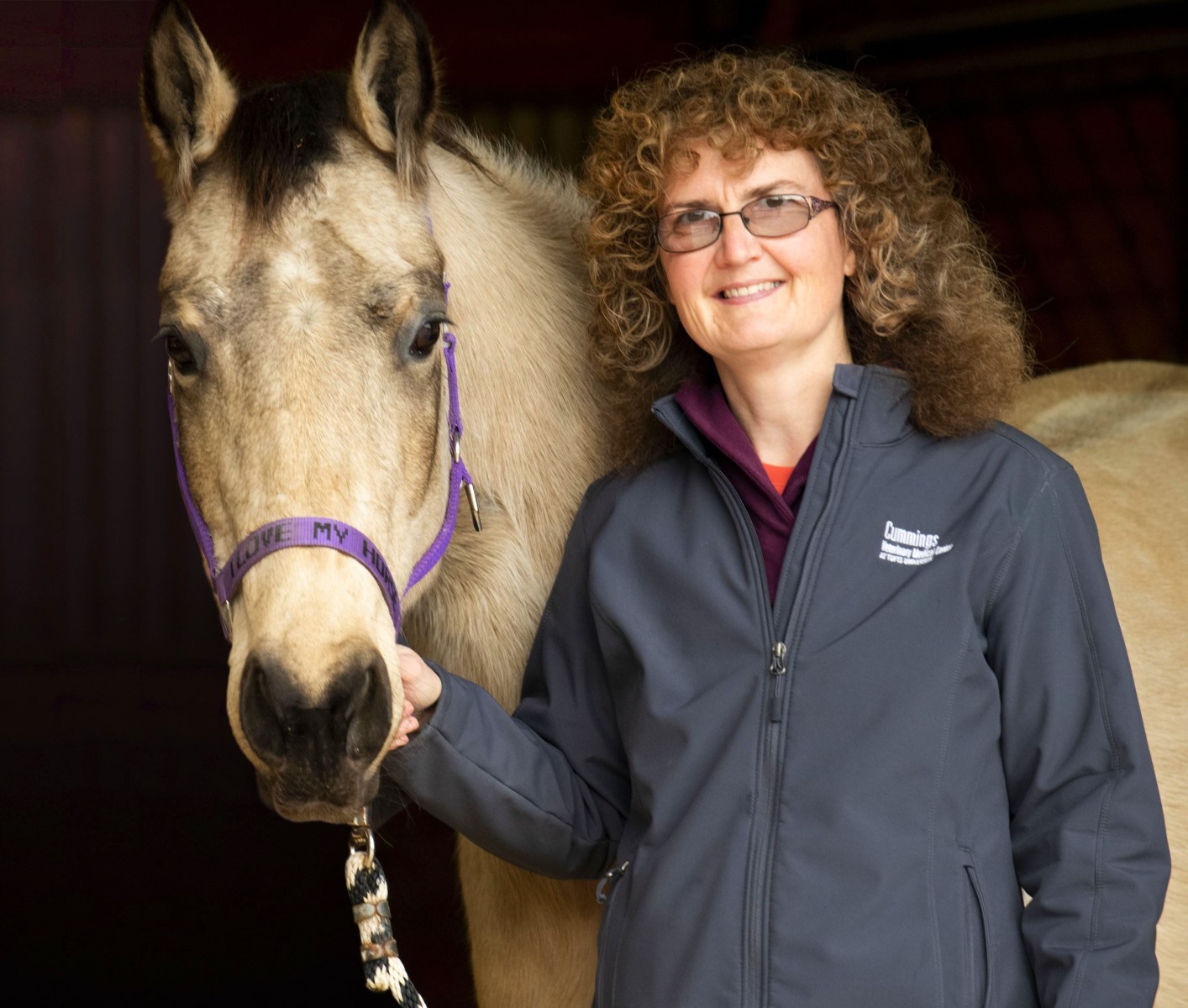
Daniela Bedenice, DVM, DACVIM (LAIM), DACVECC
Daniela Bedenice graduated from the Free University of Berlin University (Germany) in 1997 and has been a long-standing faculty member at Tufts Cummings School of Veterinary Medicine, actively contributing to the specialty care of large animals, as well as teaching and clinical research missions of the school. Dr. Bedenice became a board-certified specialist of large animal internal medicine in 2002, followed by equine emergency and critical care in 2005. Her particular interests lie in the field of respiratory disease management, clinical pharmacology and therapeutic advancements for both horses and camelids.

Carlos Pinto, DVM, PhD, DACVT
Dr. Carlos Pinto earned his Doctor of Veterinary Medicine degree at State University of São Paulo in São Paulo, Brazil, and a Doctor of Philosophy at Louisiana State University in Louisiana. Dr. Pinto started at Tufts University in August of 2023 as the Chair of Ambulatory Medicine and Theriogenology and as the inaugural Dorrance H. Hamilton Professor in Applied Reproductive Medicine. He completed a residency in comparative theriogenology at Louisiana State University and achieved certification by the American College of Theriogenologists. Dr. Pinto spent six years as an assistant professor at North Carolina State University before moving to The Ohio State University. After five years as an associate professor at Ohio, he returned to Louisiana as a Professor of Comparative Theriogenology. Dr. Pinto has been an active researcher, clinician, and teacher throughout his academic career, including acting as service chief and departmental graduate advisor.
Dr. Pinto is internationally recognized for his theriogenology research, which includes work with horses, cattle, and small animals. He has published 53 peer-reviewed articles, 89 research abstracts, and 74 book chapters.

Maureen Carroll, DVM, DACVIM-SA
Dr. Carroll has almost 30 years of experience working and teaching at Angell. She is particularly interested in diseases of the gastrointestinal tract, and has spearheaded Angell’s fecal transplant program for refractory conditions. She is proficient in managing liver disease in both cats and dogs and performs laparoscopic liver biopsies routinely. She is also highly experienced in the management of disorders of the urinary and respiratory tracts, and the endocrine system. Procedures she routinely performs include gastroduodenoscopy, colonoscopy, bronchoscopy, rhinoscopy, cystoscopy, and laparoscopy. She also assists in the placement of tracheal and urethral stents. Outside of Angell, Dr. Carroll is a very active mother of two adult children. She loves golf and skiing, and she is a cellist in a local symphony.

Antonia Ioannou, BVMS, DACVIM (SAIM)
Dr. Ioannou is a small animal internist at Angell. She specializes in infectious, kidney, endocrine, and liver diseases and has experience with extracorporeal therapies, laparoscopic liver biopsies, and endoscopic procedures. She completed her veterinary degree at the University of Glasgow, followed by a rotating internship at the University of Illinois, and her Small Animal Internal Medicine Residency at Tufts Cummings School of Veterinary Medicine. She has published research on diabetes and leptospirosis and is committed to advancing research and education in her field.

Stephanie Pumphrey, DVM, PhD, DACVO
Dr. Stephanie Pumphrey earned her DVM in 2008 from the Cummings School of Veterinary Medicine at Tufts University. She completed her ophthalmology residency at Tufts in 2012 and became board certified the same year. She is an associate professor of veterinary ophthalmology at the Cummings School. Her primary research interest is in extracellular matrix modification in canine glaucoma, but she enjoys working with a variety of species, including horses, exotic pets, and wildlife.
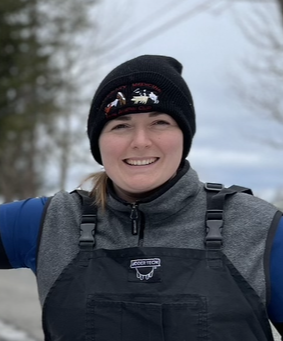
Jacquelin Graber, DVM
Dr. Jackie Lee Graber (she/her) is an assistant clinical professor in Cummings School of Veterinary Medicine's Department of Ambulatory Medicine and Theriogenology, where she works at Tufts Veterinary Field Service (TVFS). Dr. Graber is a native of Woodstock, Connecticut and grew up on a small hobby farm. She holds a D.V.M from The Ohio State University College of Veterinary Medicine, and started her career as a mixed animal practitioner in northeast Ohio. Dr. Graber then worked as a large animal ambulatory practitioner in rural northern Vermont and New Hampshire, where she focused on dairy and companion livestock medicine and surgery. She has developed her knowledge and clinical skills by completing continuing education courses and programs for early-career veterinarians while developing her interest in teaching veterinary students and clients. In private practice, she spearheaded a formal externship program for clinical year veterinary students from around the world. In addition, Dr. Graber has also developed client education programs, such as hands-on continued education wet labs for Spanish-speaking dairy farm employees and small ruminant wellness programs to encourage sheep and goat owners to learn more about the basic management of their animals. Dr. Graber’s role at TVFS is primarily a clinical generalist position where she continues to focus on a variety of interests, including companion small ruminants, companion swine and small-scale swine production, and dairy population medicine.

Isabelle Louge, DVM
Dr. Louge grew up working on farms in New York, fostering a keen interest in agricultural species. During her academic career as an animal science major and then veterinary student at Cornell University she developed a strong interest in small ruminant production medicine. After a year in private mixed large animal practice, she completed a residency in ambulatory and production medicine. After residency she reestablished the food animal ambulatory service at Texas A&M and served as the Universities' AASRP college liaison. In 2024 she became the AASRP emerging leader and established their practice discussion group program, where participants interact in small groups with similar interests to build their professional network. She now works for the Cummings School of Veterinary Medicine at Tufts University as an assistant clinical professor in the Department of Ambulatory Medicine and Theriogenology.
For More Information:
